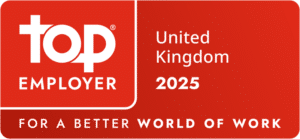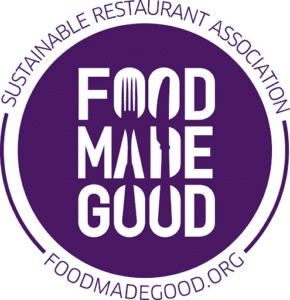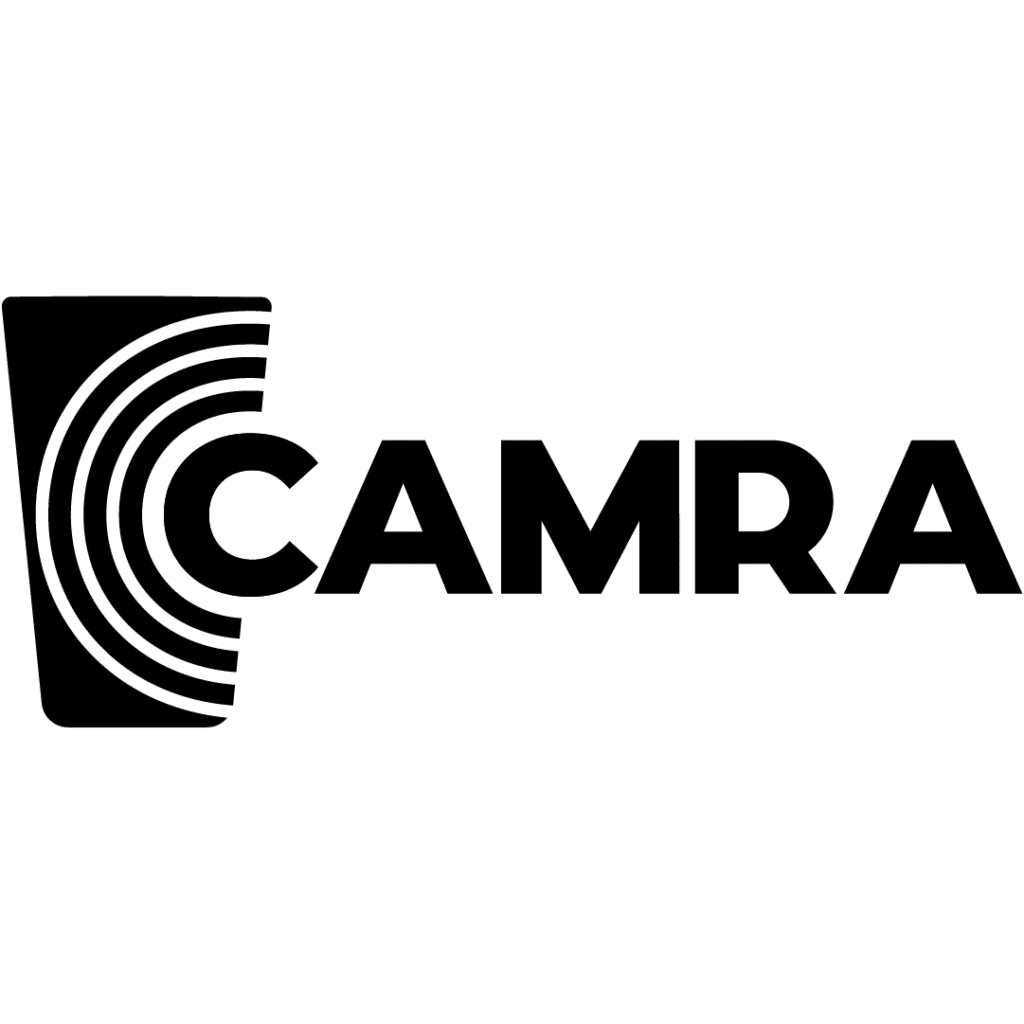Environment and sustainability
Environment and sustainability
Publishing date: March 2025
Company commitment
J D Wetherspoon is committed to operating ethically and sustainably and to finding ways, over time, to reduce carbon emissions. Recycling is promoted throughout the business, along with ways to reduce energy consumption.
It is the company’s aim to:
- increasingly minimise our environmental impact and reduce carbon emissions.
- minimise energy consumption and maximise efficiency.
- promote efficient purchasing to minimise waste and allow for material-recycling.
- adopt efficient waste-management strategies, to maximise reuse and recycling and to minimise general waste.
- minimise any emissions or effluents which may cause environmental damage.
The company’s target is to reduce annual electricity, gas and water consumption through a combination of operational initiatives and the introduction of energy-efficient technology. This approach will also reduce carbon emissions.
Net-zero emissions
The company has committed to achieving net-zero emissions in the UK and Ireland by 2050 and, if possible, will reach this goal sooner.
In January 2023, the company committed to the Science Based Targets initiative (SBTi) for all pub operations and the global supply chain, in line with avoiding the worst effects of climate change. Agreeing on science-based targets will ensure that the company follows a credible and scientifically verified carbon-reduction pathway.
Under SBTi, J D Wetherspoon commits to:
- reduce absolute scopes 1 and 2 GHG emissions 80% by FY2033 from an FY2019 base year.
- reduce absolute scope 3 GHG emissions 59% with the same time frame.
- reduce absolute scopes 1, 2 and 3 GHG emissions 90% by FY2050 from an FY2019 base year.
- reach net-zero greenhouse gas emissions across the value chain by FY2050.
Note: The SBTi is a partnership among the Climate Disclosure Project, the United Nations Global Compact, the World Resources Institute and the World Wide Fund for Nature to drive ambitious climate action. It enables companies to set science-based emissions reduction targets.
Governance and responsibilities
See: J D Wetherspoon TCFD report
The board of directors is responsible for the company’s overall climate change strategy, including oversight of environmental initiatives.
It receives an update at least twice a year, including progress made towards various initiatives.
The finance director, Ben Whitley, has overall responsibility for achieving the company targets and implementation of the plan. Sustainability, including climate change, is discussed regularly by the management board at several senior
company meetings.
The assessment, mitigation and monitoring of sustainability and climate-related risks are included in the risk management process, looking at short-, medium- and longer-term risks as part of the overall and relative significance to the business.
The company has an energy and environment group, which meets regularly and is chaired by finance director Ben Whitley. The group tracks the company’s progress against environmental targets, including carbon-reduction targets approved by the Science Based Targets initiative (SBTi).
Each pub has an energy and recycling champion, responsible for both reducing consumption at his or her pub and communicating top tips and initiatives to staff.
These energy and recycling champions help to encourage changes in behaviour, like using fire-up/ power-down guides to ensure that pubs are efficient and minimise energy consumption when closed.
All company employees receive training and regular updates on environmental matters.
Executive and employee ‘climate action incentives’
Wetherspoon’s employees and directors receive bonus payments based on performance against a range of targets, including sales performance, profit performance and standards of quality and compliance. In addition, employees with over 18 months’ service receive free shares in the company.
The company has made a commitment to reach net-zero carbon emissions by 2050 and will, if possible, reach this goal sooner. The sales and profit bonuses of all employees are affected by the company’s ability to reach these targets through areas such as energy-savings, waste management and supplychain
efficiency.
In recent years, pressure has been applied increasingly for companies to specifically incentivise directors on the achievement of climate-related targets. A company, and/or its directors, does not require a specific incentive to ‘do the right thing’. Indeed, an excessive focus on achieving specific financial or other targets can be counter-productive. There’s no evidence that introducing the type of targets preferred by institutional investors and pressure groups actually works – and there is considerable evidence that attempting to reach ambitious financial, or other, targets in isolation is harmful.
Wetherspoon considers it more important for directors to take account of employees and customers’ views than those of institutional shareholders. Shareholders should be listened to with respect, yet caution should be exercised in implementing short-term shareholders’ views. It should also be understood that modern institutional shareholders may have a serious conflict of interest, since they are often concerned with their own quarterly portfolio performance, whereas corporate health often requires objectives which lie five, 10 or 20 years in the future.
Carbon action plan
The company is a member of the Zero Carbon Forum (ZCF), a non-profit-making organisation supporting the hospitality industry to define and implement a roadmap to net-zero emissions, collaboratively and at pace.
Environmental issues, including climate change, cannot be tackled in isolation and require an integrated and co-ordinated approach.
The company has a carbon action plan, updated at least annually, detailing the various initiatives being planned or under way to reduce carbon emissions.
As part of the plan, the company is working with suppliers, building designers, equipment providers, employees and other business partners to minimise any impact.
Metrics and targets
- Scope 1 – direct emissions [from controlled sources, such as fuels used in pubs, hotels and at head office; also includes emissions from company vehicles, excluding logistics]
- Scope 2 – indirect emissions [from purchased sources, such as the generation of electricity used in pubs, hotels and at head office]
- Scope 3 – indirect emissions [which occur in a company’s supply chain, but are not from sources which the company owns or controls]
The company has been recognised for reducing its greenhouse gas emissions and is listed in the 2024 FT-Statista Europe’s Climate Leaders list, highlighting companies which, over a five-year period, have achieved the greatest reduction in emissions.
The company has reported its greenhouse gas (GHG) emissions since 2014.
| GHG emissions | Scope 11 | Scope 21,4 | Scope 32 | Fuel (car) | Intensity3 | Scope 1 | Scope 2 | Fuel (car) | Total | |
| Unit | Tonnes CO2e | Tonnes CO2e | Tonnes CO2e | Tonnes CO2e | Tonnes CO2e/£m revenue | kWh | kWh | kWh | kWh | |
| 2024 | 33,636 | 60,152 | 761,240 | 967 | 420.6 | 184,276,242 | 189,760,390 | 4,197,694 | 378,234,326 | |
| 2023 | 35,839 | 79,044 | 948 | 60.2 | 196,311,302 | 249,058,142 | 4,056,075 | 449,425,519 | ||
| 2022 | 41,324 | 65,971 | 454 | 61.9 | 226,818,295 | 205,342,472 | 1,917,037 | 434,077,804 | ||
| 2021 | 24,726 | 57,079 | 33 | 105.9 | 134,994,694 | 178,260,013 | 139,138 | 313,393,845 | ||
| 2020 | 45,012 | 68,297 | 745 | 90.4 | 244,801,679 | 292,946,271 | 3,138,550 | 540,886,500 | ||
| 2019 | 47,358 | 94,016 | 1,034 | 78.3 | 257,589,099 | 308,430,989 | 4,277,561 | 570,297,649 | ||
| 2018 | 50,725 | 115,315 | 98.0 | |||||||
| 2017 | 50,805 | 138,864 | 114.2 | |||||||
| 2016 | 51,342 | 157,190 | 130.7 | |||||||
| 2015 | 52,510 | 170,048 | 147.0 | |||||||
| 2014 | 49,251 | 163,930 | 151.3 | |||||||
2Scope 3 data is based on an assessment performed by Zero Carbon Company in 2024, this represents 89% of total output. This is the first year the company has reported Scope 3 data. The company will continue to review and refine the quality and integrity of the data as at improves each year.
3Scope 3 figures have been included in the 2024 intensity calculation.
4Refrigerant emissions from pubs are currently not reported as they are immaterial.
Reducing carbon emissions – Scopes 1 and 2
Scope 1 – direct emissions from controlled sources, eg company vehicles
Scope 2 – indirect emissions from purchased sources, eg electricity
Overall, the company has achieved a reduction of 55.6% in scope 1 and 2 emissions since financial year 2014.
The company is focusing on three main areas to achieve further reductions, along with the added incentive of reducing the impact of any future energy price fluctuations:
- reducing energy consumption
- improving energy-efficiency
- use of renewable energy
Reducing energy consumption
Our target is to reduce annual electricity, gas and water consumption through a combination of operational initiatives and the introduction energy-efficient technology. This approach will also reduce carbon emissions.
Each pub has an energy and recycling champion, responsible for both reducing consumption at his or her pub and communicating top tips and initiatives to staff.
These champions help to encourage changes in behaviour, like using fire-up/power-down guides to ensure that pubs are efficient and minimise energy consumption when closed.
Each pub receives a monthly report, detailing the amount of electricity and gas consumed, including tips on how this can be reduced.
Employees receive training in this area, along with an energy, environment and recycling guide which provides employees, among other things, with information about when equipment should be turned on/off.
Improving energy-efficiency
Several pieces of energy-saving technology are now installed as standard in any new pubs and, over the following years, will be retro-fitted in pubs across the estate.
These include:
- free-air cellar-cooling systems (cools the cellar by bringing in outside air, when external temperatures are low enough).
- LED lighting with movement-detecting sensors, using 50% less energy, on average.
- Lossnay heat-recovery systems (extraction system which recovers heat energy from the building, then uses it to warm up the incoming fresh air).
Solar panels have been installed in three pubs. Installation is planned, over the next 12 months, at head office, the national distribution centre and further pubs.
Cheetah extraction management systems are installed in about 80% of pubs to control kitchens’ ventilation. Smart electricity meters have been fitted in around 92% of pubs and are being installed, where possible, in those remaining. Gas AMRs are installed in around 85% of pubs – these record gas consumption data remotely, in a similar way to smart electricity meters.
The company consistently trials new ideas and energy-saving technology to reduce consumption and CO2 emissions, including the following:
- solar panels
- rainwater-harvesting systems
- ground-source-heat pumps
- wind turbines
- light tubes
- building energy management system (BMS)
- voltage-optimising equipment
Scope 3 emissions
Scope 3 emissions are the largest contributor to the company’s overall carbon emissions. As a starting point, we are allocating carbon emissions to every product which we sell, including food, drinks and hotel rooms. An initial assessment was carried out in 2024 and, over time, this data’s quality will improve. Reducing our scope 3 emissions will ultimately rely on a partnership approach with our UK and worldwide suppliers and on their own plans to reduce carbon emissions.
Climate-related taxation
The company has contributed £11.0 million (2023: £11.8 million) to government environmental schemes as outlined below:
| 2024 | 2023 | |
| £000s | £000s | |
| Climate change levies | 10,243 | 11,100 |
| Landfill tax | 2 | 2 |
| Fuel duty | 222 | 215 |
| Plastic packaging tax | 510 | 449 |
Biodiversity
Biodiversity underpins food production and strengthens agricultural resilience to shocks which can cause crop failure. However, many species of plant, animal and microorganism are disappearing.
The increasing loss of biodiversity means that plants and animals are more vulnerable to pests and diseases, which can put food security at risk.
Biodiversity net gain (BNG) legislation requires Wetherspoon to consider biodiversity as part of site selection, design, development and ongoing management.
Wetherspoon is developing a biodiversity policy and company approach in this area.
Deforestation
Deforestation is usually a result of agricultural expansion (eg more space for farming), wood-logging or wood-harvesting and infrastructure expansion (eg space for roads and buildings). Deforestation reduces biodiversity, increasing greenhouse gas emissions and soil erosion. It also increases forest fires and disrupts the water cycle.
EU Deforestation-Free Regulation (EUDR) will be applied in Ireland and Northern Ireland from 30 December 2024. The aim is to promote the consumption of deforestation-free products to reduce the emissions and biodiversity loss associated with deforested, converted and degraded land.
Under the EUDR, any products bought, or exported, from the EU market must not have originated from deforested land or practices which have contributed to forest degradation after December 31 2020.
In the UK, UK Deforestation Legislation (UKDR), introduced through the Environment Act 2021, is planned for implementation in 2025.
Wetherspoon is working with suppliers to check that all purchasing is responsible and within the legislation’s parameters.
Water conservation
Water usage is monitored across all pubs and head office.
A target has been set to reduce water consumption by both more careful use and the installation of more efficient equipment (where possible), including:
- data management systems which help to pinpoint unexpected changes in water consumption – which may indicate a change in behaviour or a supply leak
- water-efficient dishwashers and glasswashers
- low-flow or push-button taps, along with toilets requiring less water to flush
- all pubs to have a smart water meter installed
UK Hospitality’s environmental sustainability pledges
In October 2022, UK Hospitality, the hospitality industry trade body, published its 10 environmental sustainability pledges, outlining how it intends to support businesses in the hospitality sector on their journey to reach net zero by 2040.
Its pledges, and Wetherspoon’s position on each, are as follows:
- Deliver on 2040 net-zero aims for the sector
The company has committed to achieving net-zero emissions in the UK and Ireland by 2050 and will, if possible, reach this goal sooner.
2. Roll out the UKH Environmental Sustainability Guide to members, focusing on providing SMEs with tips, templates and best-practice resources
The company has developed an environmental, energy and recycling guide for all employees, including information, checklists and resources.
3. Eliminate unnecessary single-use packaging by 2025
The approach at Wetherspoon focuses on two areas:
- removing unnecessary single-use plastics which can be avoided
- waste management of plastics – aiming for 100% recyclable, reusable or compostable
Several steps have been taken to reduce single-use plastics’ use, including the removal of plastic straws (December 2017), the removal of single-use portion pots and cling film, complimentary water fountains in all pubs as an alternative to plastic bottles and the segregation and separate recycling of plastic milk cartons.
4. Reduce food waste by 50% by 2030
Several initiatives have been implemented to reduce food wastage (which includes preparation waste
and plate waste), including a review of portion sizes and the availability of some meals in a smaller portion size, suiting those customers seeking a lighter meal.
Any unwanted, yet fit-for-consumption, food is donated to charity.
5. Incorporate sustainability skills in relevant training courses and promote the appointment of site-based sustainability champions
Environment, energy and recycling champions are being introduced in all pubs, hotels and at head office.
Employees receive training in this area, along with an energy, environment and recycling guide which provides employees, among other things, with information about when equipment should be turned on/off.
6. Support the government’s sustainability agenda across the Hospitality Sector Council’s food strategy and tourism recovery plan
7. Promote sign-up to the Courtauld Commitment and Plastics Pact
The Courtauld Commitment 2030 is a voluntary agreement enabling collaborative action across the entire UK food chain to deliver farm-to-fork reductions in food waste, greenhouse gas (GHG) emissions and water stress which will help the UK food and drinks sector to achieve global environmental goals.
The UK Plastics Pact brings together businesses to tackle plastic waste by creating a circular economy for plastics, capturing their value by keeping them in the economy and out of the natural environment.
The company has not, at the current time, formally signed up to either commitment.
8. Facilitate engagement across supply chains to reduce environmental impacts
Scope 3 is the largest contributor to the company’s overall emissions, representing an estimated 89% of total output. Making reductions will rely, ultimately, on a partnership approach with our UK and worldwide suppliers and on their own plans to reduce carbon emissions. Engagement and work in this area are already under way.
9. Promote the roll-out of EV-charging points across the sector
The majority of Wetherspoon’s pubs and hotels does not have public car-parking. EV-charging points have been installed in two car parks, with further installations being considered.
10. Work with the Hospitality Sector Council to align industry objectives and share best practice among businesses




